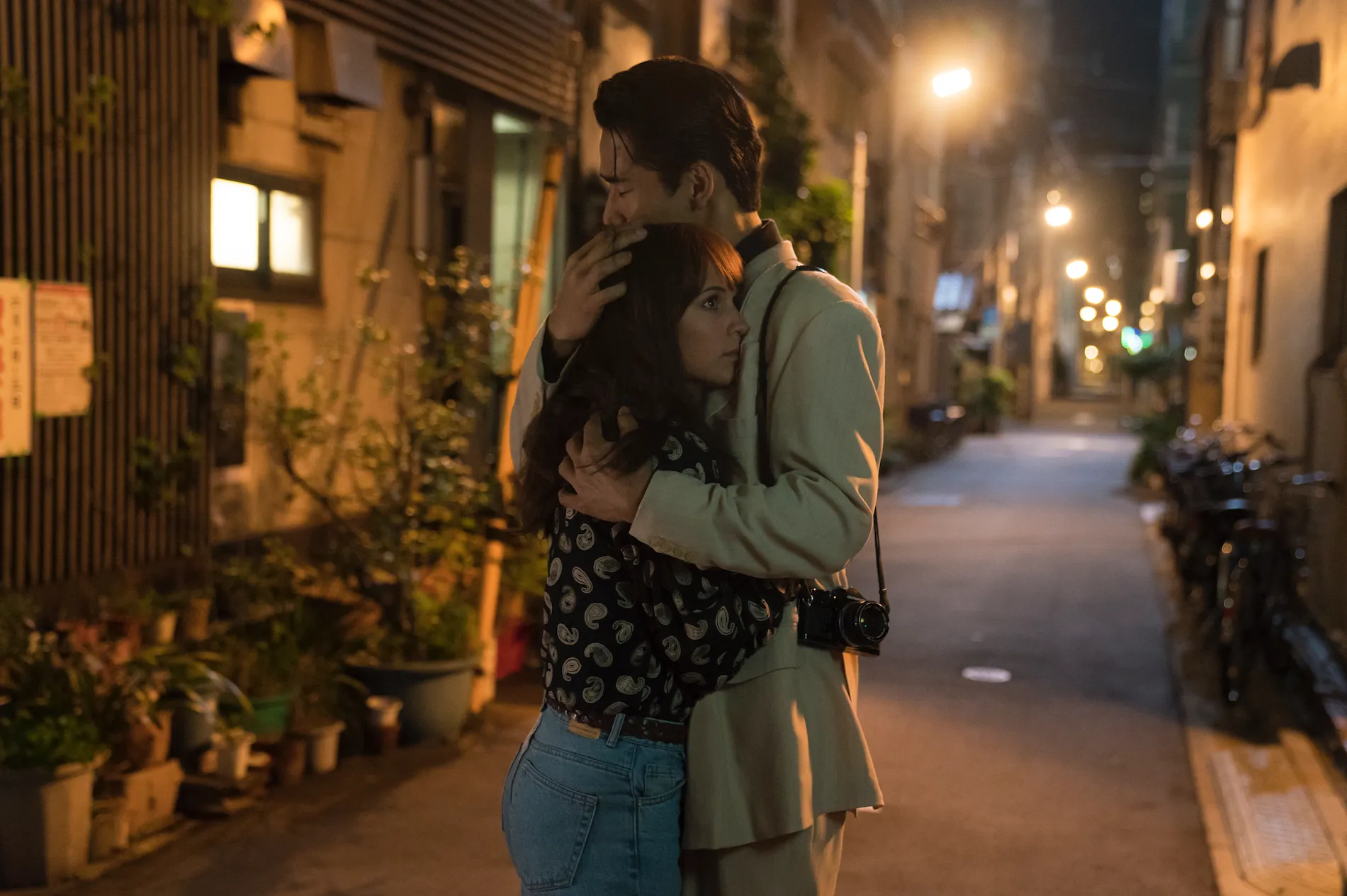Earthquake Bird
dir. Wash Westmoreland, 2019

Wash Westmoreland’s Earthquake Bird is ideal background viewing material, however it is by no means white noise. Indeed, its ominously ambient soundtrack was tended to by Nine Inch Nail’s Atticus Ross.
Louisa ‘Lucy’ Fly (Alicia Vikander) is a Swedish expat in 1980s Tokyo. She’s there translating subtitles for Michael Douglas erotic thrillers and, of course, hiding from a murky past. She attempts to integrate into Japanese society although this darkness has kept tabs on her. Lucy meets Teiji (Naoki Kobayashi), a striking photographer who is as mysterious and antisocial as her. They begin a tense affair that leads to irrevocable consequences.
Lucy Fly connects with other expats who have also ‘flown’ away from past lives. One of these is brash but beautiful Lily (Riley Keough), an American abroad. When Lily catches wind of Teiji she’s keen on being introduced. At the beginning of the film there is a clever shot that shows three trains intersecting through tunnels in the Ochanomizu area. It’s an elegant foreshadowing of themes to come.
Earthquake is nostalgia-fixated but resistant to dwelling on the specific histories of its characters. It suggests that photographers are secretive people who are perhaps not to be trusted. It’s also a comfort story, in the way that quietly unsettling mysteries can be. A decent film should float questions but withhold complete answers. Doors are left ajar here.